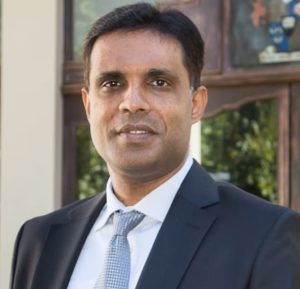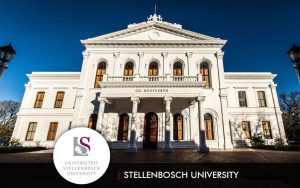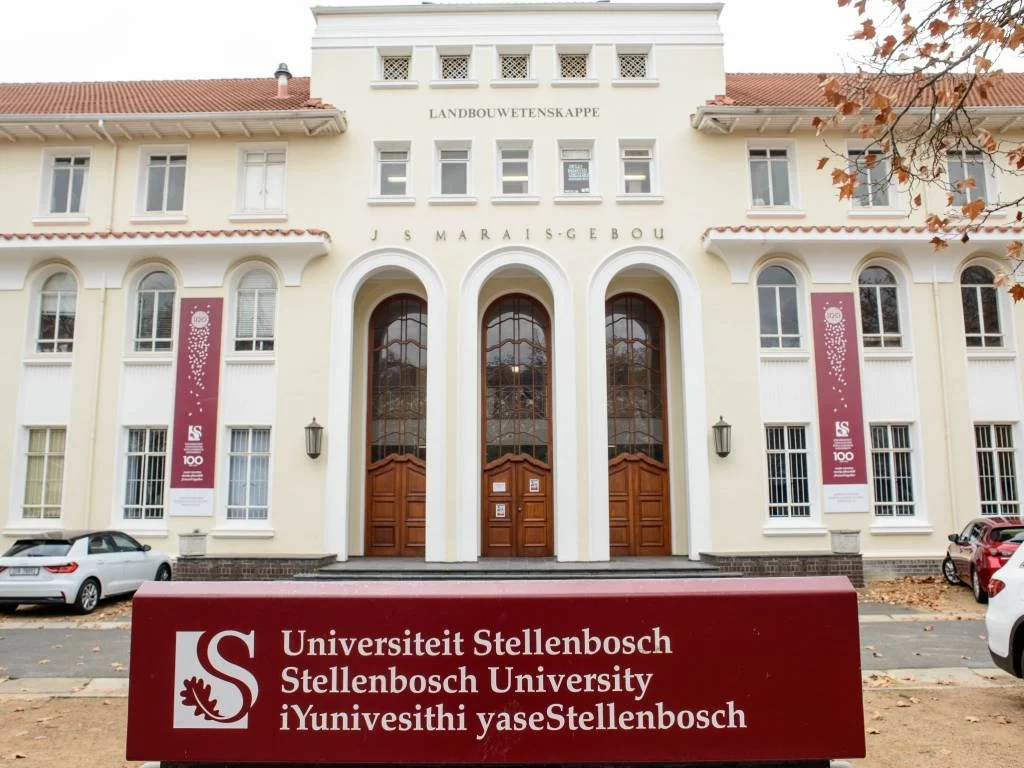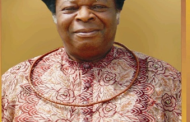Stellenbosch University, one of the top three universities in South Africa, has a new Vice-Chancellor who has been speaking on his job. What exactly did he say in his Inaugural Speech on October 1st, 2025 as reproduced from Daily Maverick

Prof Deresh Ramjugernath, the author
Stellenbosch University is known globally as a leading research-intensive institution. It is my vision to not only expand this international reputation, but to steer it to becoming Africa’s leading research-intensive university and a Top 100 global university.
This does not mean that I am going to spend my tenure chasing rankings!
We will be relentless in our pursuit of academic and research excellence guided by the challenges of our time; the intractable issues that face society today and providing real solutions to real life problems that will improve the quality of life in communities on a global scale. We will do great science while solving problems at the same time. The key here is to translate our academic excellence to make the quality of life better for all.
Our activities will be grounded in service of society and through the impact of our scientific scholarship, enquiry and discovery we will invariably feature on the global logs of intellectual leadership and recognition.
Our thrust, however, will be through our impact and embeddedness in the challenges of our surrounding communities, in our region and our continent.
Let me expand on this. Cape Town and surrounding areas display the highest incidences in the world of not only infectious diseases such as HIV and TB, but also alarmingly rising levels of non-communicable diseases such as cardiovascular disease, diabetes and cancer.
Scientists at the Biomedical Research Institute at our Faculty of Medicine and Health Sciences conduct research which has translated into discoveries that help improve the diagnosis, prevention and treatment of these illnesses.
Reaching new heights
Our scientists have also developed tuberculosis biomarkers that can make clinical predictions long before the clinical outcome is reached, and others have reached new heights in cardiovascular physiology research.
And at our Centre for Epidemic Response and Innovation our researchers first detected the Beta variant of Covid-19 and have become the continental leader to respond effectively to epidemics through pathogen genomic-surveillance, training a new generation of African scientists, enhancing biomedical discovery, improving the treatment, diagnosis and prevention of human diseases, and generating economic opportunities for Africa.
These are examples from two opposite ends of the university demonstrating the power of the university as a force for transformative good across various dimensions of society.
It sits right at the heart of my vision and the purpose for Stellenbosch and our contribution to our country’s National Development Plan. As a nation, we face many challenges regarding the social and economic transformation of our citizens, and in moving the country to becoming a more equitable society.
“We need to work on significant translation of academic outputs and outcomes to directly impact society in terms of addressing inequality, economic growth, unemployment, poverty, social justice and social cohesion”
Although Stellenbosch University is primarily focused on the academic project of learning and teaching, research and innovation, and social impact, we need to work on significant translation of academic outputs and outcomes to directly impact society in terms of addressing inequality, economic growth, unemployment, poverty, social justice and social cohesion.
This means that Stellenbosch University needs to go beyond simply graduating students and generating and transferring knowledge.
Through a greater focus on an engaged quadruple helix stakeholder model, we will play a crucial and significant role in contributing to social and economic development nationally and globally. This requires the university to be truly engaged, innovative and entrepreneurial, while at the same time maintaining an unwavering focus on transformation that will inherently strengthen excellence.
Broad pillars
In my vision the broad pillars to lead Stellenbosch University into becoming the leading research-intensive university on the continent include the following: holistic transformation; world-class administrative and business processes, including digital transformation; the expansion and enhancing of the research enterprise; learning and teaching excellence with equitable student success and enhanced graduate employability; overall staff and student wellbeing; strategic internationalisation; enhancing partnerships and collaboration with industry, private sector and government; and holistic sustainability, namely financial, social and environmental.
I would be remiss if I did not address the matter of holistic transformation at our university.
The university must be more intentional and deliberate in its actions, especially regarding holistic transformation.
It must examine and understand its history more carefully and intensify its process of introspection that extends from institutional culture to its core functions. Stellenbosch University must be fully committed to redress through restitution and interventions that are perceived as being authentic in the pursuit of its vision.
It is a given that we must pay careful attention to demographic transformation as part of our vision to be a multicultural, multilingual, diverse, and inclusive institution that is conscious of equity.
 Holistic transformation
Holistic transformation
Holistic transformation will require us to develop and implement plans to evolve and improve our research, learning and teaching, administration, management of staff and students, facilities, finances, stakeholder engagement, etc. In fact, it touches all aspects of our organisation. For organisations to thrive and succeed and be at the forefront in their sectors, they must have a commitment to change for progress and adaptation in an ever-changing world. Always striving to do better and improve!
For me, the basis for a world-class university is its ability to offer academic staff and students world-class administrative and business processes that enable them to thrive.
Our staff and students are our greatest assets. The values instilled in our students shape the way they engage with society at large and how they contribute to social cohesion and nation building. This is a crucial element in providing students with a genuinely transformative experience. Our goal is to nurture and develop students into citizens who make meaningful and positive contributions to the world.
Similarly, we must ensure effective management of our personnel to maximise their potential and their commitment to our institutional values.
To become the leading research-intensive institution on the African continent requires expansion and enhancement of the research enterprise. This must be undertaken through developing and building critical mass in interdisciplinary, multidisciplinary, and trans-disciplinary research to solve the “wicked” problems of our time.
I cannot overemphasise the importance of learning and teaching excellence as the foundation of a strong, sustainable research-intensive university.
An integrated approach needs to be embedded by recognising that a transformative student experience happens at the cutting edge of knowledge and takes place in all spaces of the university, from the formal curriculum through to the extra-curricular activities, and is digitally enabled.
The professionalisation of learning and teaching is an essential element in the pursuit of excellence. As part of its restitution commitment, our university must play a significant role in making access to quality higher education available to those who have been previously disadvantaged and come from underprivileged backgrounds. We must ensure access with success. This is the only way that we can make a meaningful contribution to the transformation of society. Student success and the employability of our students must be one of the highest priorities of the institution.
Strategic internationalisation
Strategic internationalisation is crucial to building the research, and teaching and learning networks and consortia to realise the vision of being a leading research-intensive university. Through strategic partnerships, the university will significantly grow its research base, as well as joint academic offerings.
We will enhance partnerships and collaborations with industry, private sector, civil society and the government in a trans-disciplinary approach to substantially leverage funding and subsequently translate research and innovation outputs and outcomes into socioeconomic benefit.
“The quadruple helix for innovation, where there is an integrated working of industry, government, academic and research institutions, and civil society to achieve strategic goals must be a model for the university to strengthen its relevance to society”
Most successful higher education institutions globally foster a culture of collaboration and partnership. The quadruple helix for innovation, where there is an integrated working of industry, government, academic and research institutions, and civil society to achieve strategic goals must be a model for the university to strengthen its relevance to society.
While Stellenbosch has an incredible footprint with European institutions, there should be an emphasis on building strategic partnerships and collaborations with industry, private sector, and governments on the African continent to further elevate Stellenbosch University’s impact on the continent. Stellenbosch University must be a university not just in Africa, but working with African and global partners, for the advancement of Africa!
All universities contend with issues of sustainability, and maintaining stability in a volatile, uncertain, complex and ambiguous world, while ensuring an unwavering focus on the main function of the university, which is its academic project. This is no different for Stellenbosch University.
Financial sustainability issues require addressing the ever-decreasing subsidies and grants from the government, greater student debt, and the escalating costs in the provision of higher education, in a context of policy and regulation changes by the government. This requires a strong focus on fundraising and diversification of revenue streams.
So much to do, so little time
In the famous words of the poet Alfred Tennyson’s poem Ulysses, although with a degree of latitude and free hand to our modern context: “Come my friends it is not too late to seek a newer world and let us strive, to seek, to find, and not to yield in our scientific quest to deliver a better world.” DM




























